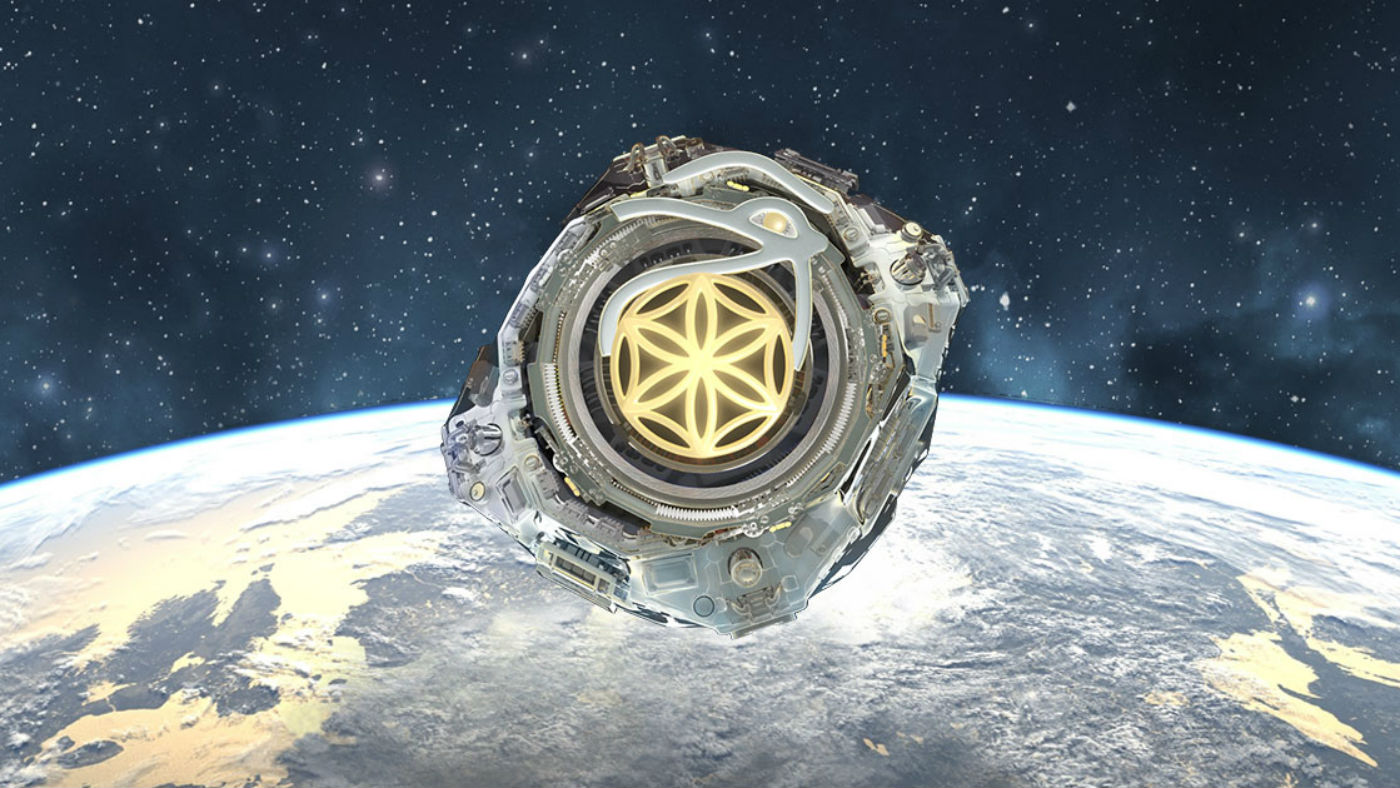Asgardia, the world’s first ‘virtual space nation’
Revolutionary experiment - or one man’s crazy vanity project?

A free daily email with the biggest news stories of the day – and the best features from TheWeek.com
You are now subscribed
Your newsletter sign-up was successful
The world’s first ‘virtual nation’ has been launched into space - but is the idea revolutionary, or one man’s crazy vanity project?
What is Asgardia?
The pet project of Russian scientist and billionaire Igor Ashurbeyli, the Space Kingdom of Asgardia is the world’s first ‘virtual nation’.
The Week
Escape your echo chamber. Get the facts behind the news, plus analysis from multiple perspectives.

Sign up for The Week's Free Newsletters
From our morning news briefing to a weekly Good News Newsletter, get the best of The Week delivered directly to your inbox.
From our morning news briefing to a weekly Good News Newsletter, get the best of The Week delivered directly to your inbox.
Ashurbeyli says he established Asgardia last year, naming it after the home of the Norse gods, to create a “peaceful society”, offer easier access to space technologies, and protect Earth from space threats such as asteroids and man-made debris.
At an official unveiling, Ashurbeyli said he believed the space-bound private ‘country’ could “offer an independent platform free from the constraint of a land-based country’s laws”.
He created his new nation in space so that it falls outside the juristication of Earth governments - although behaviour in space is governed by the Outer Space Treaty, signed by 103 countries including the US and Russia.
Who can become a citizen?
A free daily email with the biggest news stories of the day – and the best features from TheWeek.com
Anyone over the age of 18 with an email address, including ex-convicts, can become citizens. Around 114,000 people from 204 countries have signed up.
In June, voting began to determine the details of Asgardia’s constitution, with only those who agree to the finalised terms counted as official Asgardians.
According to Newsweek, Turkey is the source of the largest number of applicants - more than 16,500.
What was launched last week?
Last week, the Asgardia-1 satellite set off to the International Space Station using Nasa’s commercial Orbital ATK Cygnus spacecraft. The ‘nanosat’, roughly the size of a loaf of bread, is carrying half a terabyte of data belonging to 18,000 of Asgardia’s citizens and is set to be deployed to low-Earth orbit where it will stay for the next 18 months.
The data includes personal family photos as well as digital representations of the space nation’s flag, coat of arms and constitution.
Longer term, CNN says Asgardia’s team hopes to create habitable platforms in low-earth orbits, the first one located 100 to 200 miles from space, which is also where the ISS is located, and launch manned-test flights within eight years.
Is it officially recognised?
Ashurbeyli hopes to convince the UN to recognise Asgardia as a sovereign nation. That would require a two-thirds majority in the UN Security Council.
Ashurbeyli plans to form a democratic government following parliamentary elections next year. Governmental departments such as a prosecutor’s office and a national audit office will be run by an administrative centre based in Vienna.
The Daily Mail says Asgardia already has its own cryptocurrency, the Solar, which is registered at the European Union Intellectual Property Office.
Dr Ram Jakhu, associate professor at McGill University told the Daily Express: “Perhaps the most exciting aspect of the great Asgardian experiment is its commitment to transnational democracy. The parliamentary elections give everyone a chance to play their role in shaping this new nation.”
Despite its ambitious plans, Asgardia is not currently recognised as a nation, “so for now, the only benefit offered to citizens of the space nation is the ability to upload data to Asgardia-1 in orbit”, says New Scientist.
-
 How the FCC’s ‘equal time’ rule works
How the FCC’s ‘equal time’ rule worksIn the Spotlight The law is at the heart of the Colbert-CBS conflict
-
 What is the endgame in the DHS shutdown?
What is the endgame in the DHS shutdown?Today’s Big Question Democrats want to rein in ICE’s immigration crackdown
-
 ‘Poor time management isn’t just an inconvenience’
‘Poor time management isn’t just an inconvenience’Instant Opinion Opinion, comment and editorials of the day
-
 Epstein files topple law CEO, roil UK government
Epstein files topple law CEO, roil UK governmentSpeed Read Peter Mandelson, Britain’s former ambassador to the US, is caught up in the scandal
-
 Iran and US prepare to meet after skirmishes
Iran and US prepare to meet after skirmishesSpeed Read The incident comes amid heightened tensions in the Middle East
-
 Israel retrieves final hostage’s body from Gaza
Israel retrieves final hostage’s body from GazaSpeed Read The 24-year-old police officer was killed during the initial Hamas attack
-
 China’s Xi targets top general in growing purge
China’s Xi targets top general in growing purgeSpeed Read Zhang Youxia is being investigated over ‘grave violations’ of the law
-
 Panama and Canada are negotiating over a crucial copper mine
Panama and Canada are negotiating over a crucial copper mineIn the Spotlight Panama is set to make a final decision on the mine this summer
-
 Why Greenland’s natural resources are nearly impossible to mine
Why Greenland’s natural resources are nearly impossible to mineThe Explainer The country’s natural landscape makes the task extremely difficult
-
 Iran cuts internet as protests escalate
Iran cuts internet as protests escalateSpeed Reada Government buildings across the country have been set on fire
-
 US nabs ‘shadow’ tanker claimed by Russia
US nabs ‘shadow’ tanker claimed by RussiaSpeed Read The ship was one of two vessels seized by the US military